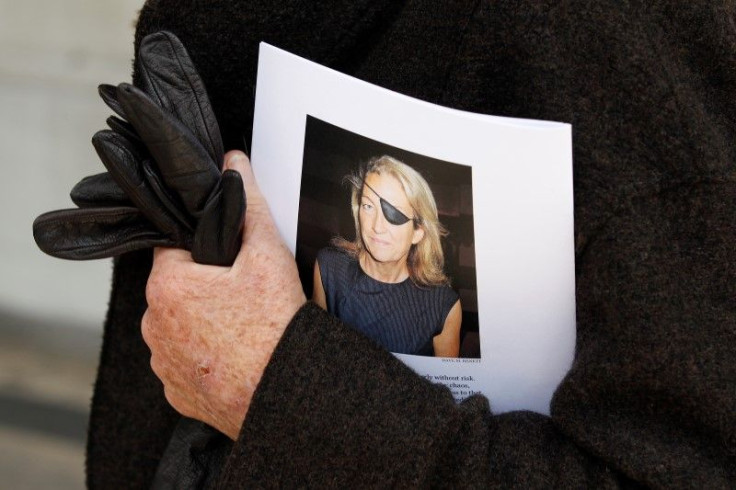Marie Colvin Death: Slain American Journalist’s Family Sues Assad Regime, Claims Killing Was Targeted

The family of American war reporter Marie Colvin, who died in Syria in 2012, is suing President Bashar al Assad’s regime, claiming that she was killed because of her reporting.
The family has filed a wrongful death lawsuit against the Syrian government at a federal court in Washington. The civil complaint says that a number of high-ranking Syrian officials worked together to hunt down foreign journalists as well as Syrians aiding them. Assad’s brother Maher, along with other top advisors, were mentioned, reported the New York Times.
The Sunday Times correspondent was at the rebel-held area of Baba Amr, in Homs, when she was killed on Feb. 22, 2012, by government artillery. French photojournalist Remi Ochlik died in the same attack. The lawsuit says Syrian officials launched a rocket attack on a makeshift broadcast studio in a neighborhood of Homs, according to the Associated Press (AP). Several activists were also killed in the attack by Syrian armed forces.
This is reported to be the first attempt to sue the Syrian government under a statute that allows Americans to sue foreign governments that the United States lists as state sponsors of terrorism, the New York Times quoted Scott Gilmore, a lawyer in Washington with the Center for Justice and Accountability, as saying.
Gilmore led the investigation and helped file the lawsuit on behalf of Cathleen Colvin, Marie Colvin’s sister, and the journalist’s niece, Justine Araya-Colvin. It said the Assad regime “hunted down journalists and media activists” who were trying to document the government’s deadly crackdown on Syrian rebels, according to the AP. The government has maintained that its attacks targeted terrorists.
It is believed that satellite phones used in broadcasts were traced by Syrian intelligence and used to locate the Baba Amr media centre. Documents show a government informant confirmed the location before the attack on the journalists was ordered that night, the lawsuit says, according to the BBC.
“The transmissions were intercepted, and they were tracked to their GPS co-ordinates,” BBC reported Gilmore as saying.
“On top of that there was a whole web of informants who were already out searching for the journalists. Any journalist in Homs…could have been a target.”
The lawsuit seeks compensatory and punitive damages and claims that there were no lawful military targets in the vicinity of the media center at the time of the attack and that the occupants targeted by the Assad regime were unarmed civilians.
More than two dozen journalists were reported killed in Syria in 2012.
© Copyright IBTimes 2025. All rights reserved.






















